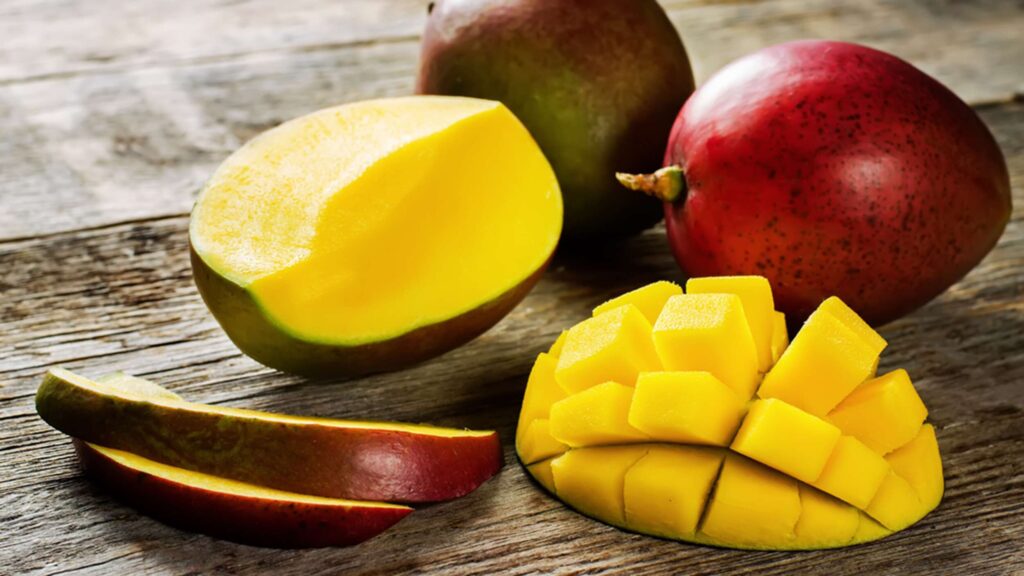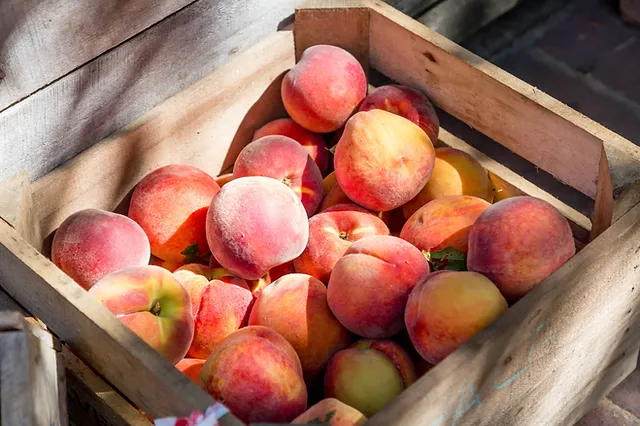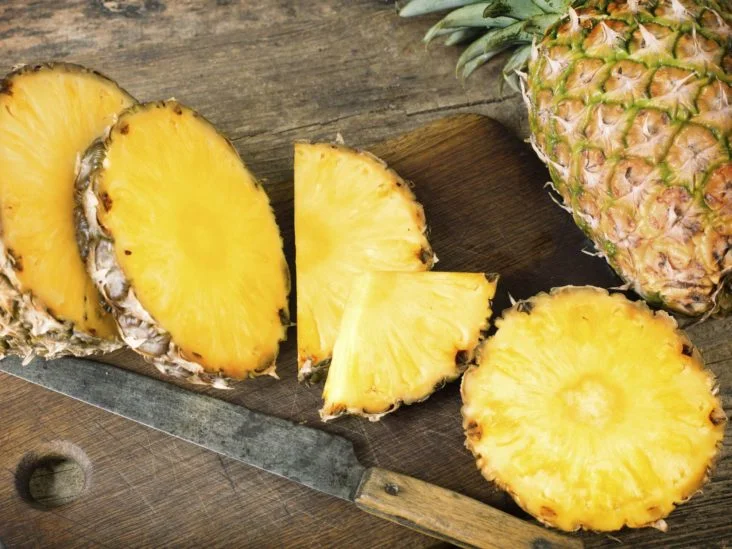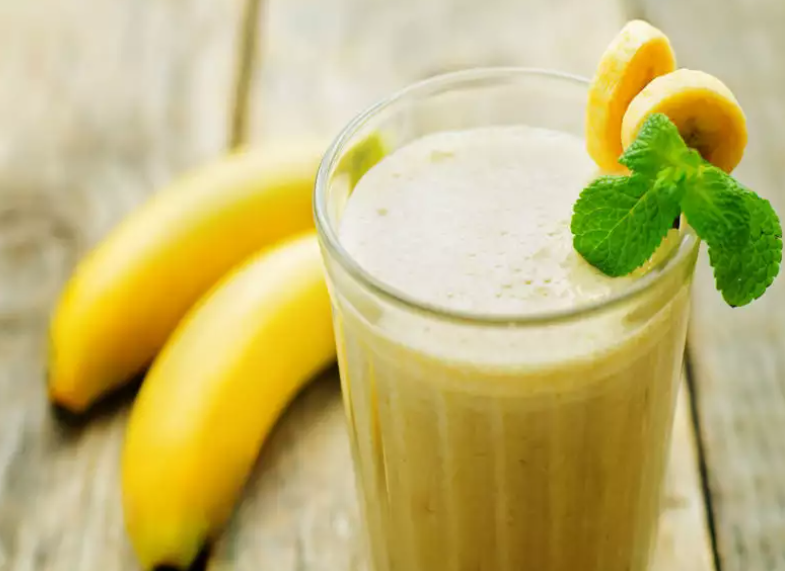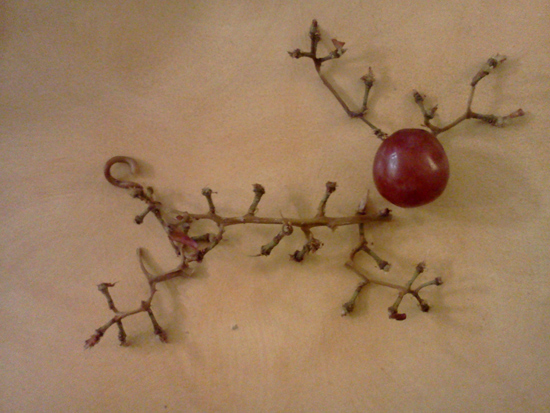Many people love mangoes for their sweet taste and health benefits. If you have a pet, you might be curious if it’s okay to share some mango with your cat or dog. Unlike people, cats and dogs eat different foods, and what’s good for us isn’t always good for them.
This article will explain if it’s safe to let your cats and dogs have mango and what you need to do to make sure they enjoy it safely.
Table of Contents
Can Cats and Dogs Have Mango?
Yes, cats and dogs can enjoy mango in small amounts. Mangoes are packed with vitamins, minerals, and antioxidants that can be good for your pets.
Mangoes can be a tasty snack or a special treat for your pet, but they shouldn’t replace their normal food.
Cats and dogs are meat-eaters and need a diet that is rich in protein. So, you should only give mangoes to your pets once in a while, as part of a diet that includes other types of food too.
Mangoes have good stuff in them that can help your pets. But pets need different food than people, so their diets should be just right for them. Sometimes, you can give your pets a bit of mango as a little bonus or mixed in with the rest of their food.
What’s Good About Mangoes for Pets?
Mangoes are full of healthy things and are great for people and pets to eat.
Some of the good things in mangoes that can help your pets include:
- Vitamin A: This vitamin is important for keeping your pet’s eyes, skin, and immune system in good shape.
- Vitamin C: It fights off cell damage and gives the immune system a boost.
- Fiber: This helps with digestion and keeping your pet regular.
- Potassium: It helps control blood pressure and keeps the heart healthy.
- Beta-carotene: Once inside the body, it turns into vitamin A and protects against cell damage.
But remember, pets have their own special dietary needs that are not the same as people’s.
Good Reasons to Give Mangoes to Your Cat or Dog
Here are some reasons why giving mangoes in small amounts to your pets is a nice idea:
- Antioxidants: Mangoes are full of them, like vitamin C and beta-carotene, and they help protect your pet’s cells.
- Digestive Health: Fiber in mango helps keep your pet’s tummy happy and their digestion on track.
- Immune System Support: The vitamin C in mango boosts the immune system by making more white blood cells to fight illness.
- Healthy Skin and Coat: The beta-carotene in mango turns into vitamin A in the body, keeping your pet’s skin and coat looking nice and healthy.
- Hydration: Mango is juicy, so it can help keep your pet well-hydrated.
However, pets should only have mangoes as a small part of their diet and not replace their regular food. If pets eat too much mango, they could miss out on other important nutrients.
What to Watch Out For When Feeding Mangoes to Pets
While there are benefits to giving mangoes to pets, there are also things to be careful about.
These are some of the risks:
- Stomach Trouble: Too much mango can upset your pet’s stomach because it has a lot of natural sugars.
- Allergy: Some pets might be allergic to mangoes, which can make them itchy or even cause trouble breathing if they try it for the first time.
- Sugar Content: Mangoes have lots of sugar, which could make your pet gain weight or cause other problems, especially if they are already overweight or have diabetes.
- Choking Hazard: The hard pit inside mango could choke your pet or get stuck in their stomach if they swallow it.
Always talk to a vet before giving your pet a new food like a mango. They can give advice that’s just right for your pet’s health. Give mangoes in small amounts and take out the pit to keep your pet safe.
If you want to give your pet mango, you need to do it the right way to make sure they are safe.
Here’s how to give mangoes to your pets:
- Start Slow: Give your pet a little piece of mango at first to see if they like it and can handle it without any problems. If all goes well, you can slowly give them more over time.
- Pick the Right Mango: Make sure the mango is ripe and smells sweet. An unripe or too ripe mango can cause a stomach upset.
- Take Off the Skin and Pit: Remove the skin and pit because they are not safe for your pet. Chop the mango into bits that are easy for them to eat.
- Give Just a Bit: Mangoes are sugary, so only a little bit is good for your pet.
- Watch for Reactions: Keep an eye on your pet for any signs that the mango isn’t agreeing with them, like vomiting or itching. If you see something wrong, stop giving them mango and talk to your vet.
- Try Other Fruits and Veggies: Along with mango, other fruits and veggies can give your pets a well-rounded diet.
How Much Mango Can Your Pet Have?
The right amount of mango for your pet depends on how big they are, how old they are, and their health. A good rule is to make sure that treats like mango don’t make up more than 10% of what they eat in a day.
To sum up, you can indeed give your pets mango. Start with a small bit of ripe mango without the skin and pit. Make sure you only give them a little and see how they react. If you want to know more about giving mango or any food to your pets, the best person to ask is your vet.


